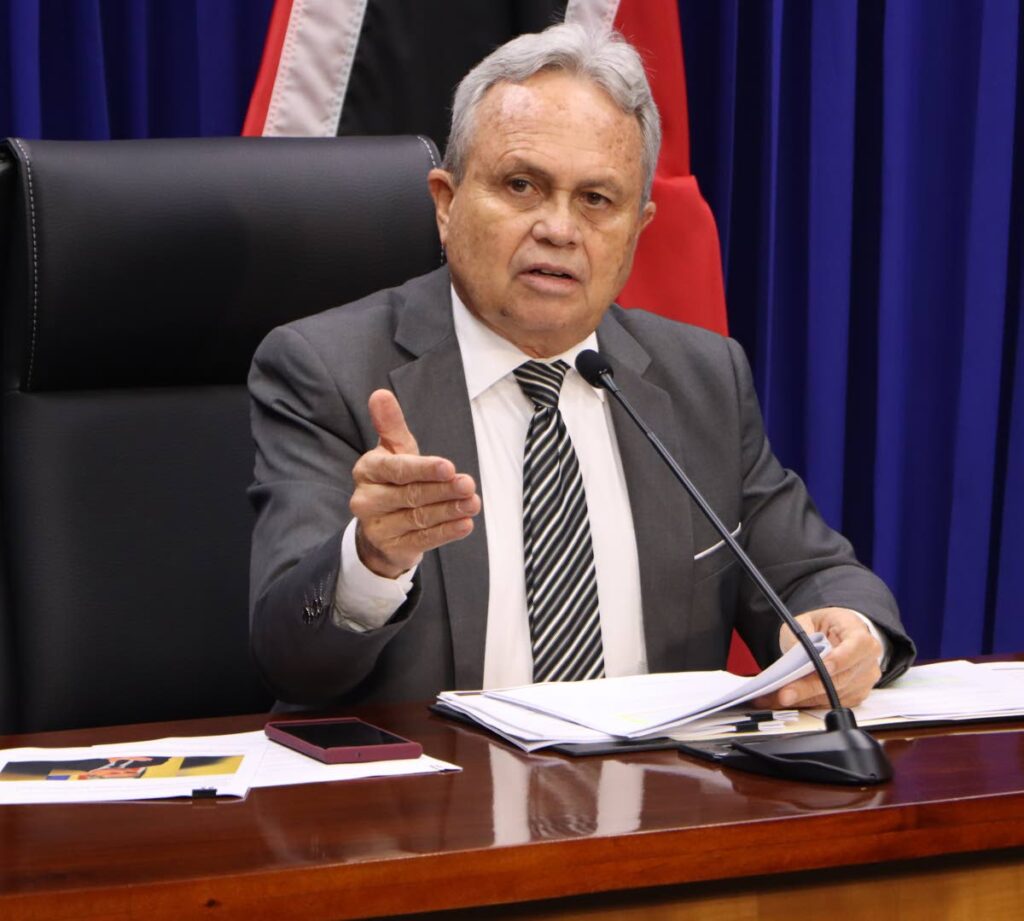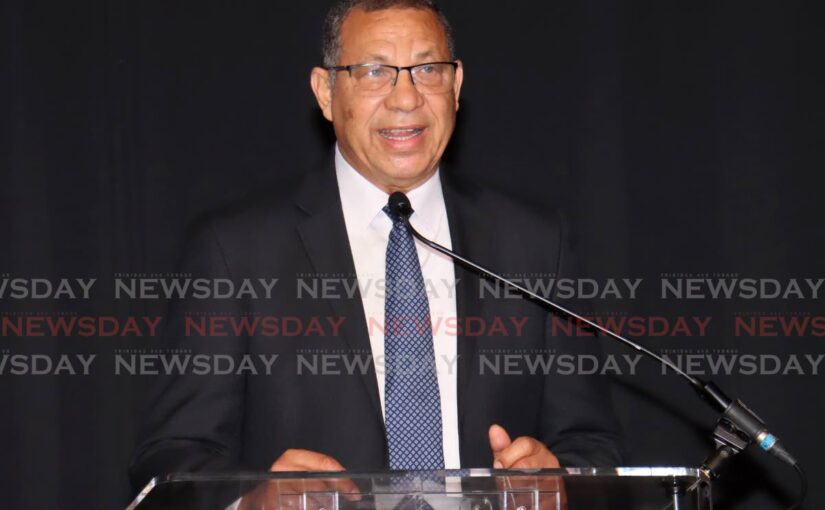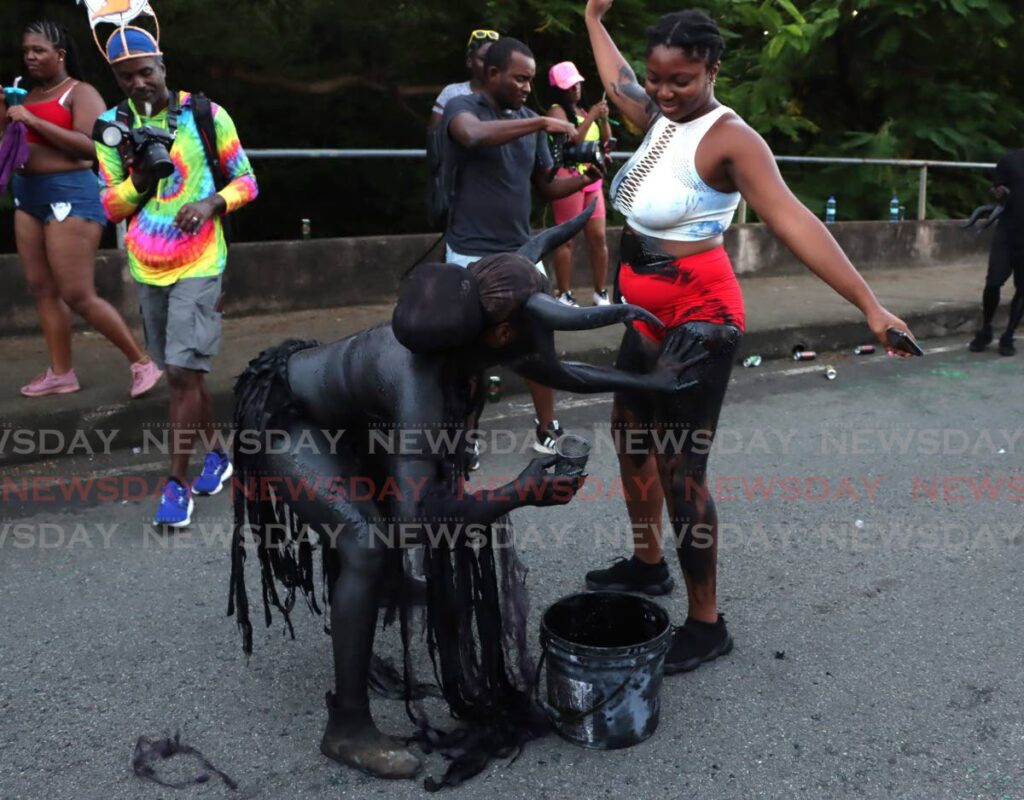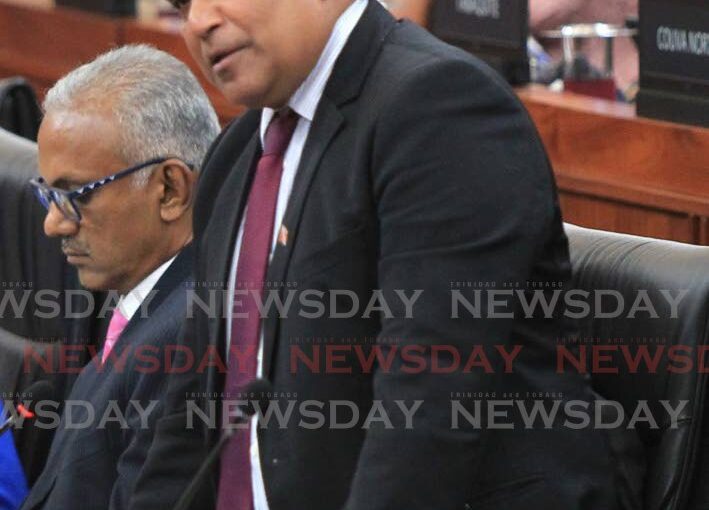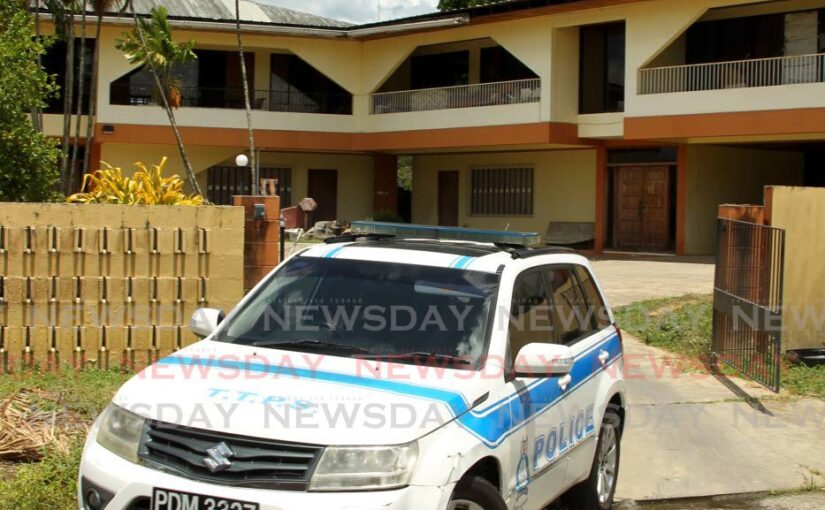

The Mathura family home on Butu Road, South Valsayn, at which the skeletal remains of teenager Hannah Mathura were found in March. - File photo by Faith Ayoung
Alana Mathura, 63, who was jointly charged with her husband for the murder of her daughter Hannah Mathura, has died.
Mathura died around 5 am on November 1 while under prison supervision at the Eric Williams Medical Sciences Complex.
Newsday understands she was hospitalised earlier this week after she began acting "erratically" in prison.
Her cause of death is yet to be determined.
Newsday contacted Prison Commissioner Carlos Corraspe, who said he was unable to comment due to the sensitivity of the matter.
>
Mathura and her husband Andrew Mathura, 65, were charged on October 15, seven months after Hannah’s remains were found buried in a shallow grave in the backyard of the family’s Butu Road, Valsayn home.
The discovery was made after a relative told police the teen had been killed and buried there.
The remains showed what appeared to be a gunshot wound to the skull.
The couple was arrested at the same house where Hannah's remains were found.
Andrew Mathura is currently being held at the Eastern Correctional Rehabilitation Centre as he awaits trial.
Hannah’s parents were initially held two days after her body was found but were freed after a week in custody.
Authorities faced difficulties in proving the remains were Hannah’s but DNA test results in April helped them to confirm the identity of the remains by a process of elimination.
Police then spent several months amassing evidence before charging the duo.
They appeared before Master Sarah de Silva from the Tunapuna police station on October 16 and were not called on to enter a plea since the charge against them was laid indictably.
>
They were remanded to prison and told they could apply for bail if they met the requirements of the Bail (Amendment) Act 2024.
The amendment to the Bail Act allows a judge or master to grant bail for an indictable offence where the person charged “can show exceptional circumstances to justify the granting of bail.”
The prosecution was given until October 28 to disclose initial details to the defence, and the police has to send their completed file to the DPP by January 15, 2025.
An indictment and evidence must be filed by April 16, 2025, or on April 23 the master will discharge the accused or apply sanctions on an application by the defence.
The police prosecutor, legal officer Insp Ashley Mongroo, told the master there were 26 prosecution witnesses. Some 12 statements are already in hand and 14 are outstanding. The evidence against the two also includes post-mortem and DNA reports, photographs, medical certificates, clothing and a piece of red cloth.
Mongroo also said there were two interviews from Mathura and one from her husband, and the nature of the evidence included “utterances and witnesses' accounts.”
He admitted the evidence was “mainly circumstantial.”
Mathura, 18, was reportedly autistic and had allegedly been the subject of abuse.
She was last seen in June 2017.
>
Neighbours claim to have heard multiple instances of abuse and Hannah’s siblings also alleged they were abused both verbally and physically.
A neighbour on March 13 told Newsday that she had made multiple reports to the police, but no action was taken.
Speaking with Newsday days after Hannah’s body was discovered, North Central Division Snr Supt Richard Smith said this situation should be a lesson to the rest of TT about the importance of being a good neighbour.
He said people in communities tend to keep to themselves nowadays but warned this is not necessarily good.
“If you realise that something is happening with one of your neighbours or you suspect something, some people might say ‘yuh fast’ and ‘yuh macoing’ and all these different words they will use. But the fact is you’re just being a concerned citizen, and it doesn’t take much out of you to call 555 or 999.”


